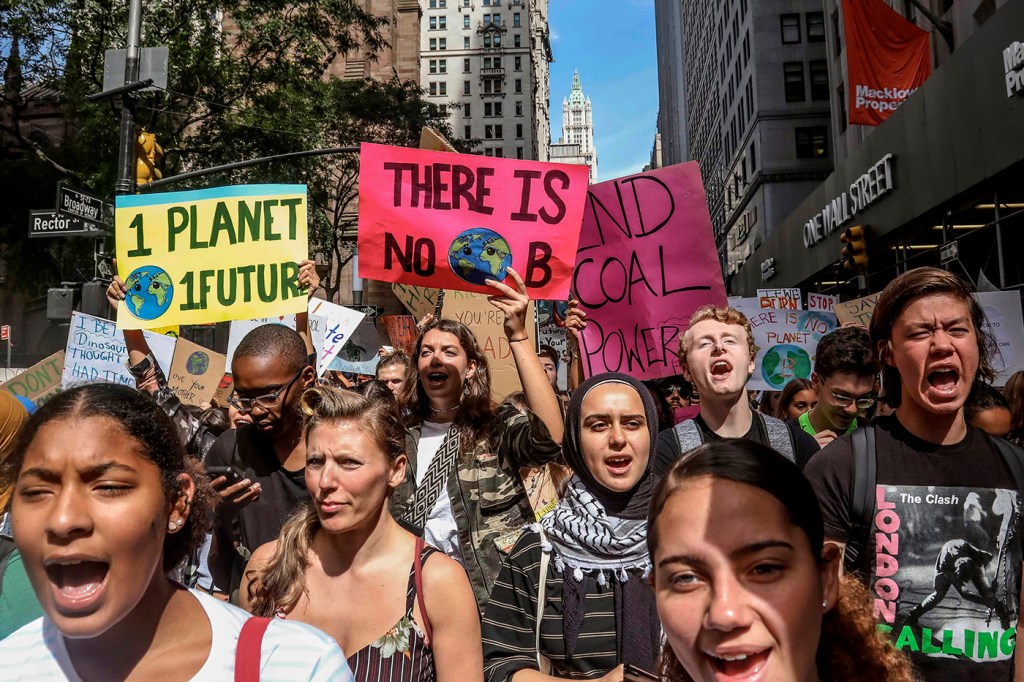Could the youth who organized global climate strike be uniquely positioned to influence world leaders?

A teenager stood on the steps of City Hall in Boston on Friday, holding a cardboard sign over her head that read “You’ll die of old age. I’ll die of climate change.” Around her, thousands of people carried equally dire messages.
“The climate is changing, why aren’t we?”
“Time is running out”
“There is no planet B”
Similar scenes played out around the world, as over a million people of all ages walked out of schools and workplaces to join a global climate strike led by young people.

From left to right: Matthew Nisbet, a professor of communication, public policy, and urban affairs, and Moya Bailey, an assistant professor of culture, societies, and global studies. Photo of Matthew Nisbet courtesy of Matthew Nisbet. Photo of Moya Bailey by Matthew Modoono/Northeastern University.
“Youth activism is visual, it’s dramatic, it’s novel,” says Matthew Nisbet, a professor of communication, public policy, and urban affairs at Northeastern who studies how people communicate about climate change. “It has a lot of authenticity in the voice—high school students are not trying to spin you.”
The strike was inspired by Greta Thunberg, a 16-year-old girl in Sweden who has been skipping school on Fridays to demand the Swedish government enact stricter policies to protect the environment.
Thunberg recently crossed the Atlantic on an emissions-free sailboat in order to attend the United Nations’ Climate Action Summit in New York on Monday. She will join world leaders who will discuss concrete plans to meet the goals laid out in the 2015 Paris Climate Accord, a landmark pact between 195 nations to adopt green energy sources, cut down on climate change emissions, and limit the rise of global temperatures.
Her journey gained traction on social media, and her message has been resonating with young people around the world.
“Youth have been the leaders of so many of our movements,” says Moya Bailey, an assistant professor of culture, societies, and global studies at Northeastern, who cited the struggle for racial equality as a prime example. “There’s something about youth that has a prescience for what is coming in the future that they’re going to have to deal with, that adults sometimes don’t consider.”
A recent poll found that more than 70 percent of teenagers and young adults believe that climate change will cause at least a moderate amount of harm to people in their generation. The majority of them feel angry and afraid, according to the poll, and are motivated to take action.
“What I experience from a lot of youth is anxiety and existential dread about the future as it relates to climate change,” says Bailey, who studies the way digital media is used to promote social causes. “And then that being the impetus for wanting to do something.”
And when kids demand something, their parents are more likely to listen, says Nisbet. Especially when it has to do with their future.
“Anyone under the age of 50 is going to live to see some pretty spectacular changes in the global environment, and society because of it, but because they’re so young they have the most at stake,” Nisbet says. “And they don’t have the same type of filters that older adults have when they talk about these very serious issues.”
For media inquiries, please contact media@northeastern.edu.





